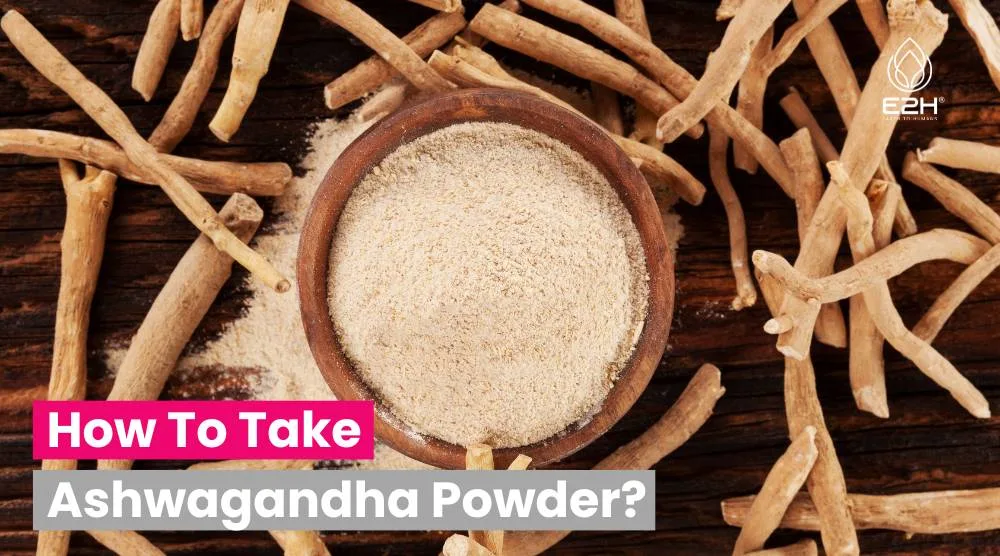Can I Take Magnesium and Ashwagandha Together: Yes, you can take magnesium and ashwagandha together. They are generally safe and can complement each other’s benefits for stress relief, improved sleep, and overall well-being.
How do magnesium and Ashwagandha work together?
Magnesium and Ashwagandha, when taken together, create a synergistic effect that enhances their individual benefits. Magnesium, a vital mineral, plays a crucial role in over 300 biochemical reactions in the body, including nerve function and stress response. Ashwagandha, a powerful adaptogen, works by regulating the body’s stress response system. It helps in balancing cortisol levels, the body’s primary stress hormone. When combined, magnesium’s calming effect on the nervous system and Ashwagandha’s stress-reducing properties work together to promote relaxation, reduce anxiety, and improve sleep quality.

Does the combo address specific health issues?
Yes, the combination of magnesium and Ashwagandha addresses specific health issues, particularly those related to stress and sleep. Magnesium is known for its ability to relax muscles and calm the nervous system, which can be beneficial for those with sleep disorders or anxiety. Ashwagandha contributes by reducing cortisol levels and combating the effects of stress on the body. This duo is particularly effective in managing symptoms of anxiety, stress-induced insomnia, and general fatigue. Additionally, they can aid in improving mood and cognitive function, making them a powerful pair for mental health and well-being.
What’s the ideal dosage of Combind magnesium and Ashwagandha for effectiveness?
The ideal dosage of combined magnesium and Ashwagandha varies based on individual needs and the specific forms of these supplements. Generally, a daily dose of 200-400 mg of magnesium is recommended. For Ashwagandha, a typical dose ranges from 300-500 mg of standardized extract taken once or twice daily. It’s important to note that these dosages can vary, and the effectiveness depends on the form of magnesium (like magnesium glycinate) and the quality of Ashwagandha extract. Starting with a lower dose and gradually increasing it can help in determining the most effective amount for individual needs.
How does Ashwagandha naturally relieve stress?
Ashwagandha naturally relieves stress by regulating the body’s stress response system. It works as an adaptogen, meaning it helps the body adapt to and manage stress more effectively. Ashwagandha influences the production and regulation of cortisol, the body’s primary stress hormone. By moderating cortisol levels, it reduces the physiological effects of stress. Additionally, Ashwagandha supports the functioning of the adrenal glands, which play a key role in stress response. Its calming effect on the nervous system also contributes to its ability to alleviate anxiety and improve sleep quality, further aiding in stress relief.
Why is magnesium essential for optimal health?
Magnesium is essential for optimal health as it is involved in numerous processes within the body. It plays a critical role in nerve transmission, muscle contraction, blood glucose control, and bone health. Magnesium is also vital for the production of energy and protein synthesis. It helps regulate neurotransmitters, which send messages throughout the brain and nervous system.
Adequate magnesium levels are necessary for maintaining heart health and preventing hypertension. Its role in combating inflammation and oxidative stress is also significant. Magnesium’s ability to relax muscles and improve sleep quality makes it indispensable for overall physical and mental well-being.
What side effects can you expect when taking Ashwagandha and magnesium supplements?
When taking Ashwagandha supplements and magnesium, some individuals may experience side effects, although these are generally mild. For Ashwagandha, possible side effects include upset stomach, diarrhea, and vomiting, particularly when taken in high doses. It may also cause drowsiness, so caution is advised if operating heavy machinery or driving.

Magnesium supplements, particularly in high doses, can lead to gastrointestinal issues like diarrhea, nausea, and abdominal cramping. Some forms of magnesium can also cause a laxative effect. It’s important to adhere to recommended dosages and monitor your body’s response when starting these supplements.
Are magnesium and Ashwagandha a combined solution for anxiety and stress?
Magnesium and Ashwagandha, when combined, can be an effective solution for managing anxiety and stress. Magnesium plays a key role in nerve function and mood regulation, helping to calm the nervous system and reduce anxiety.
Ashwagandha, known for its adaptogenic properties, helps the body manage stress more effectively by regulating cortisol levels. Together, they work to balance the body’s stress response, providing a natural way to alleviate anxiety symptoms and promote a sense of calm. This combination can be particularly beneficial for those dealing with chronic stress or anxiety disorders.
How does Ashwagandha enhance resilience and overall well-being?
Ashwagandha enhances resilience and overall well-being by modulating the body’s response to stress. As an adaptogen, it helps the body cope with external stressors, reducing the impact of stress on physical and mental health. Ashwagandha works by regulating the production of stress hormones like cortisol, thus aiding in maintaining a balanced state. It also supports adrenal function, which is crucial in stress response. Additionally, Ashwagandha has been shown to improve energy levels, enhance focus, and boost mood, contributing to an overall sense of well-being and increased resilience against day-to-day stressors.
How do magnesium and Ashwagandha compare for sleep improvement?
Magnesium and Ashwagandha both contribute to sleep improvement, but they do so in different ways. Magnesium aids in sleep by relaxing the muscles and calming the nervous system, which can help in falling asleep more easily. It also regulates neurotransmitters that are involved in sleep cycles. Ashwagandha, on the other hand, helps in improving sleep quality by reducing stress and anxiety, which are common causes of sleep disturbances. It also supports the natural sleep-wake cycle of the body. While magnesium helps in initiating sleep, Ashwagandha contributes to sustained, restful sleep.

Is it safe to combine Ashwagandha with magnesium glycinate?
Combining Ashwagandha with magnesium glycinate is generally considered safe for most people. Magnesium glycinate is a form of magnesium that is well-absorbed and less likely to cause gastrointestinal issues. When paired with Ashwagandha, it can enhance the stress-relieving and calming effects of both supplements. This combination can be particularly beneficial for those seeking natural remedies for stress, anxiety, and sleep issues. However, as with any supplement, it’s important to be mindful of dosages and individual reactions, especially when combining different supplements.
Who should avoid magnesium glycinate and Ashwagandha, and why?
| Group | Reason to Avoid |
|---|---|
| Pregnant or Breastfeeding Women | The safety of these supplements during pregnancy and breastfeeding is not well-established. |
| People with Autoimmune Diseases | Ashwagandha may stimulate the immune system, potentially worsening symptoms in autoimmune conditions. |
| Individuals with Thyroid Disorders | Ashwagandha can affect thyroid function, particularly in hypothyroidism. |
| Those on Sedatives or Anti-Anxiety Medications | The calming effects of these supplements may enhance the effects of sedatives or anti-anxiety medications. |
| People with Low Blood Pressure | Ashwagandha can lower blood pressure, which might be an issue for those already dealing with low blood pressure. |
| Individuals with Kidney Disorders | High doses of magnesium can be problematic for those with kidney issues, as the kidneys regulate magnesium levels in the body. |
FAQs For ‘Take Magnesium and Ashwagandha Together’
Can taking magnesium and ashwagandha together improve sleep quality?
Yes, this combination can enhance sleep quality by reducing stress and promoting relaxation.
Is the magnesium and ashwagandha combination effective for anxiety relief?
Yes, they work together to reduce anxiety symptoms by calming the nervous system and regulating stress hormones.
Can I take magnesium and ashwagandha every day?
Yes, daily intake is generally safe, but adhere to recommended dosages and monitor your body’s response.
Will combining magnesium with ashwagandha increase energy levels?
Yes, this combination can boost energy by improving stress response and sleep quality.
Are there any dietary sources of magnesium that complement ashwagandha supplements?
Yes, foods like almonds, spinach, and avocados are rich in magnesium and complement ashwagandha well.
Conclusion
Combining magnesium and ashwagandha offers a natural, effective way to manage stress, improve sleep, and enhance overall well-being. This powerful duo works in harmony to bring balance to your body and mind. If you’re looking for a natural approach to better health, consider this combination as a potential ally in your wellness journey. Remember, a little step towards self-care can lead to significant improvements in your daily life.














